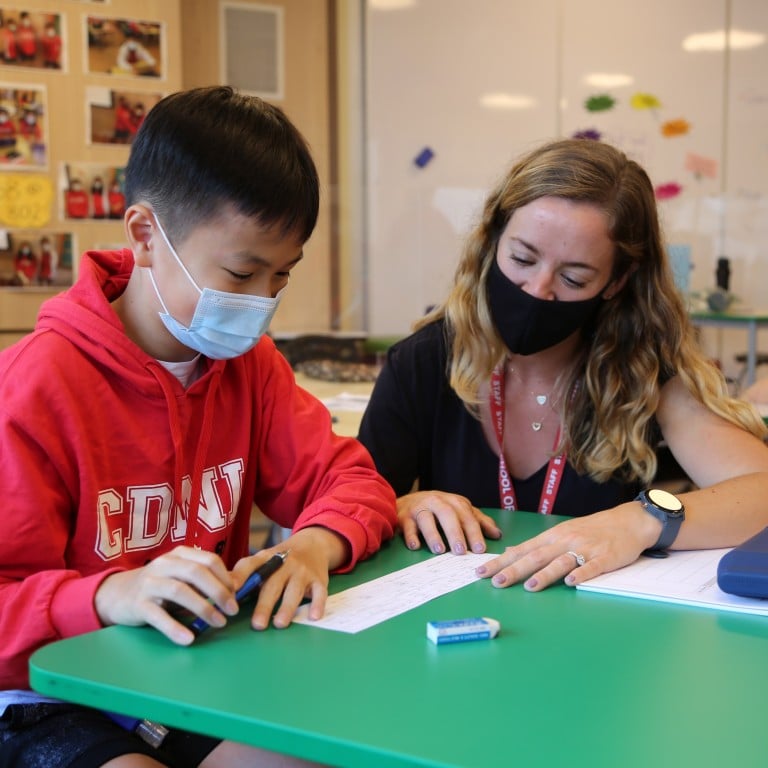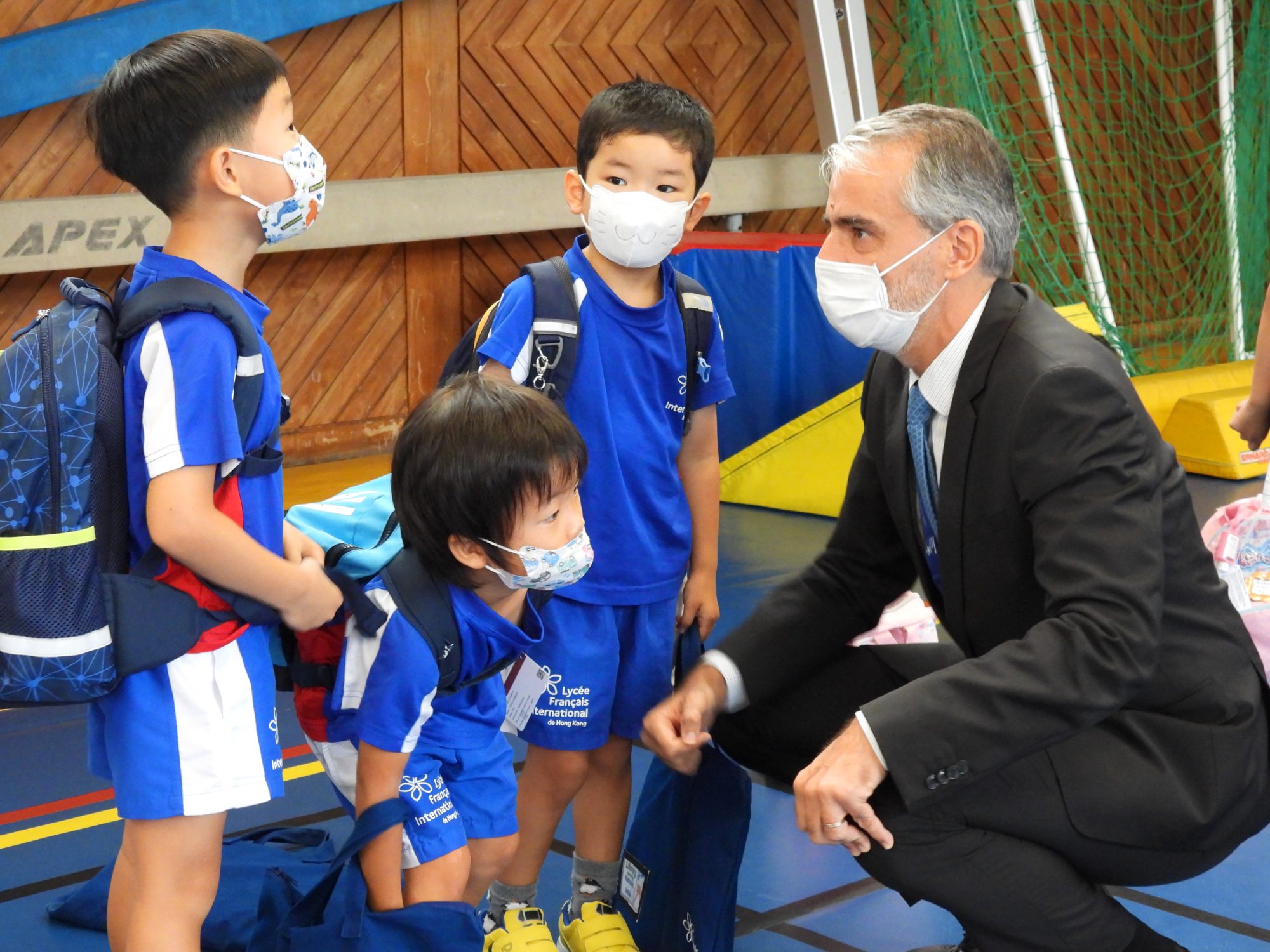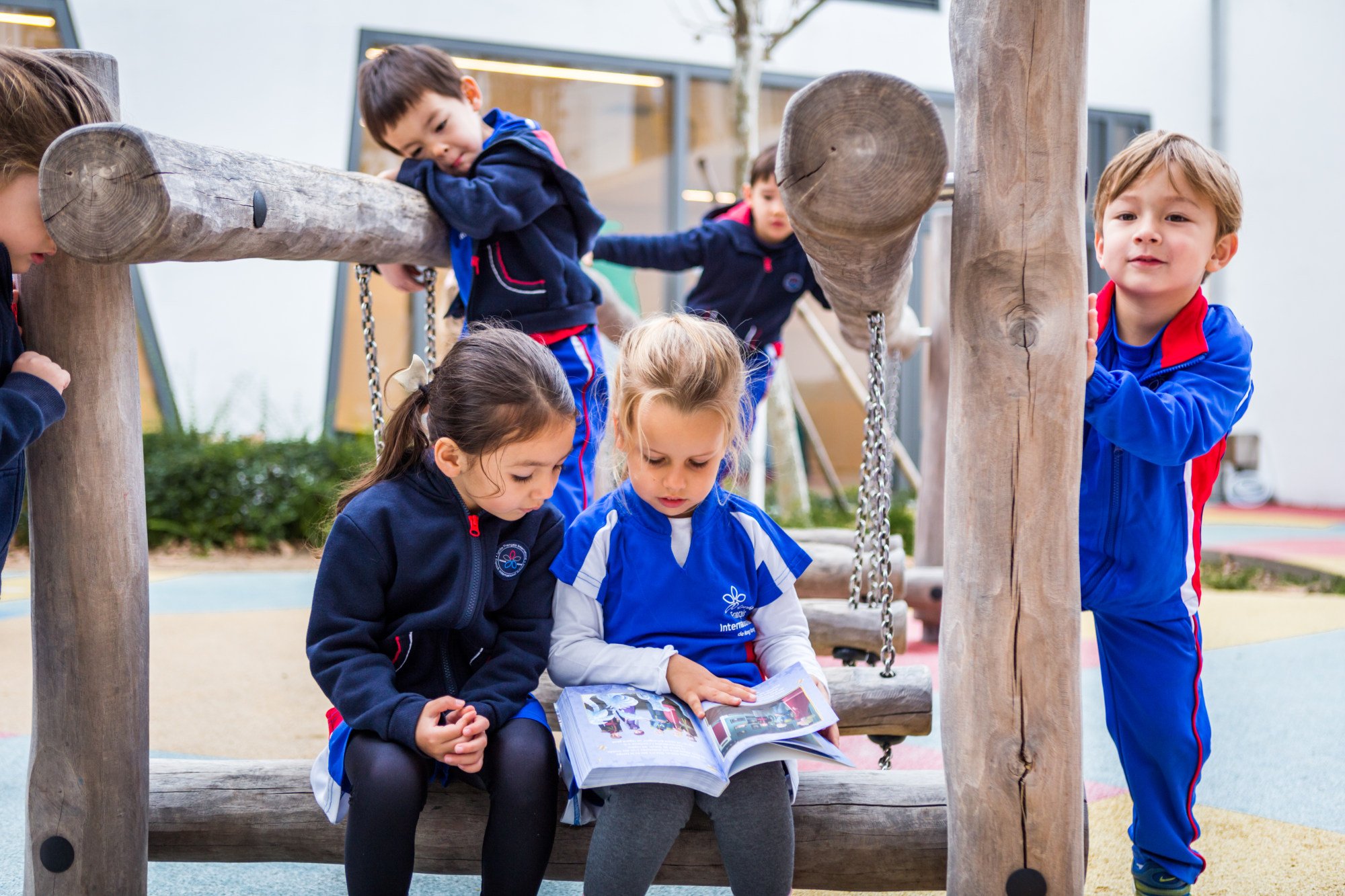
Learning another language transforms how children think – in and outside the classroom – here’s how students are learning Mandarin, French, Spanish, Korean and more in Hong Kong’s international schools
- Mandarin and French are the most common additional languages taught in Hong Kong and Bain consultancy say such multilingualism can aid studies in other subjects
- Spanish and Korean are among the options at certain schools, with on-screen and online exposure offered to compensate for limited in-person exposure outside of class
Learning a second language can help develop a student’s cognitive abilities for better thinking, reasoning and problem-solving skills, and those who speak multiple languages are more likely to excel in other academic subjects. Fluency in a foreign language can also prepare students for future studies and their career in our global economy. To this end, nearly all Hong Kong’s international schools offer students options to learn a second, or even third, language in addition to English, which is typically the primary medium of instruction.
Lack of exposure to the target language has long been a major challenge for students learning a foreign language, especially in Hong Kong which has a predominantly Cantonese-speaking population. Schools have designed various programmes and activities to counter this problem and facilitate their students’ learning.
There is also often a general lack of practical support from parents which is essential for children learning a foreign language. Nonetheless, with guidance and support from the schools, even parents who cannot read and speak the foreign language being studied can support their children in a fun and enjoyable way.

David Butler, acting upper school principal of Canadian International School of Hong Kong (CDNIS), said the International Baccalaureate (IB) requires all students to engage in language acquisition throughout their schooling as part of its goal to cultivate international mindedness and promote peace through intercultural understanding.
According to Butler, CDNIS promotes the study of French as part of the school’s Canadian identity, and Mandarin to give its students an advantage in a world that will be characterised by China’s ascent as a world power. As students join the upper school in grades six to eight, they study both Mandarin and French. Mandarin is offered in six different phases, while different French classes serve both beginner and advanced French speakers. In the high school years, most students continue in either Mandarin or French, though they can study both. In the International Baccalaureate Diploma Programme (IBDP) years, the school offers Mandarin, French and Spanish as options.
Bain research has shown that multilingualism’s benefits extend beyond the ability to master languages, which is in itself a great asset. Multilingual children who have increased cognitive abilities also do well in subjects such as maths, the sciences and humanities. Multilingualism increases cultural awareness and empowers students to be better global citizens.
In addition, research has found the benefits extend beyond a student’s time in school, with the ability to speak another language even shown to be beneficial in fighting dementia in later life.
The French International School has committed to offering a bilingual programme. Students at the primary level learn French and English either as a first or second language, and Mandarin in addition.
At the secondary level, students continue the study of French and English, and are also offered a third language in Mandarin or Spanish.
Christopher Chadwick, principal of the international section at Korean International School (KIS), said early exposure to a foreign language helps students build up a powerful brain, increasing the information pathways in it to develop listening, critical thinking and problem-solving skills.
“Learning an additional language also has a great impact on students’ academic achievement,” he said, “not only offering them more opportunities in the future, but also helping them to increase their reading and writing skills in any other subjects.”
Learning a different language not only allows students to communicate with people around the world, but also gives them a glimpse of new cultures and new ways of thinking. This helps broaden the mind and open up the idea of tackling issues from a perspective not previously considered.
KIS offers a flexible dual language programme for which students can choose either Chinese, Korean or Spanish as their second language. Since the programme is offered at both primary and secondary levels, students can continue with one language or shift to another when they reach secondary level. Chadwick said these language programmes have a great impact on students, opening doors to their future studies or careers, and preparing them to be global citizens.
At the Hong Kong International School (HKIS), Mandarin (entry point at all grade levels), Spanish (starting in middle school) and French (starting in high school) are offered as second or third language options. The course structure of its foreign language programmes is aligned with the language proficiency guidelines of the American Council on the Teaching of Foreign Languages (ACTFL).
Kevin Chang, director of Chinese studies and world languages at HKIS, said the school’s teachers are highly trained in applying best practices in foreign language learning with a balanced approach in all three modes of communication: interpretative, interpersonal and presentation skills. “These language programmes intentionally make connections with other subjects to allow frequent application of high-level transferable skills, such as literacy, design thinking and inquiry approaches,” he added.

For students in Hong Kong, a major obstacle to learning a foreign language is the lack of opportunities to practise the language, as nearly 90 per cent of the city’s population speak Cantonese.
“For example, a child learning Spanish in Hong Kong will struggle to find authentic opportunities to practise, either at school or outside school,” said the FIS spokesman, adding that students can overcome this obstacle by using available resources, notably on-screen and online. These include watching films and videos in the target language and using apps which engage young learners.
Butler said that to compensate for the students’ lack of exposure to the foreign language, CDNIS’ teachers are finding ways to further bring those languages to life in the classroom, focusing on cultural studies, topics relevant to adolescents and teens, and using electronic resources such as films and social media.
According to Chang, since the local environment often does not offer authentic settings for practise in certain languages, the school’s programmes and instructors need to create these opportunities. “Students need to take every opportunity to be immersed in the target language, take risks and not be afraid of making mistakes,” he said.
“We address the problem of our students’ limited exposure to the language by exposing them daily to their second language of choice, and we also provide students with support outside the lesson, being available for them through different virtual channels,” said KIS’ Chadwick.
Parental involvement outside the classroom is essential for students learning a foreign language, but how can parents support their children, especially for those who do not know the target language well?
“We give two essential pieces of advice to parents. Make sure to maintain your child’s mother tongue at home, as a strong anchoring in one’s mother tongue is key to mastering additional languages. And while you don’t have to become bilingual yourself, it is important to make the effort to show interest in the languages being learned by your children. It can be as easy as putting vocabulary words on the fridge and trying to speak these words with your child, repeating them afterwards,” said the FIS spokesman.
According to FIS, whatever parents do, it must be fun and supportive: “It is really important that parents don’t endlessly correct [mistakes] at home, but allow their children to play with any additional languages. As strong as the urge might be to constantly correct the learner, this has the effect of making the learner lose confidence. Parents can play games, learn alongside their children and praise progress.”

Parents also should not be surprised if children sometimes mix languages or seem to take backward steps in their mother tongue, as this is the brain organising and sifting knowledge.
Chang said parents can also support their children in foreign language learning by keeping in close communication with teachers, using the resources provided to students and families, giving lots of encouragement to the child, and creating opportunities for authentic language and culture exposure to the target language. “Most of all, parents can be patient with the language learning process. Learning a second language should be fun and enjoyable, minimising the pressure of being ‘correct’,” he said.
“We provide guidance to the parents, share with them the curriculum, and offer them the resources and applications. We also support them via email anytime they need,” said Chadwick. “Parents can help and support their children even if they do not know the language themselves. Take an interest, help with homework, talk about watching a movie in the different language.”
Finally, while it can be challenging for parents who cannot speak or read the languages their children are learning, Hong Kong thankfully has many agencies providing additional tuition in Mandarin and French should that be necessary, Butler added.

